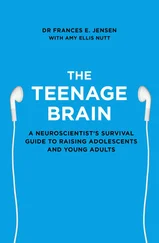Dee Snider - Teenage Survival Guide
Здесь есть возможность читать онлайн «Dee Snider - Teenage Survival Guide» весь текст электронной книги совершенно бесплатно (целиком полную версию без сокращений). В некоторых случаях можно слушать аудио, скачать через торрент в формате fb2 и присутствует краткое содержание. Жанр: Детская образовательная литература, на английском языке. Описание произведения, (предисловие) а так же отзывы посетителей доступны на портале библиотеки ЛибКат.
- Название:Teenage Survival Guide
- Автор:
- Жанр:
- Год:неизвестен
- ISBN:нет данных
- Рейтинг книги:4.5 / 5. Голосов: 4
-
Избранное:Добавить в избранное
- Отзывы:
-
Ваша оценка:
- 100
- 1
- 2
- 3
- 4
- 5
Teenage Survival Guide: краткое содержание, описание и аннотация
Предлагаем к чтению аннотацию, описание, краткое содержание или предисловие (зависит от того, что написал сам автор книги «Teenage Survival Guide»). Если вы не нашли необходимую информацию о книге — напишите в комментариях, мы постараемся отыскать её.
Teenage Survival Guide — читать онлайн бесплатно полную книгу (весь текст) целиком
Ниже представлен текст книги, разбитый по страницам. Система сохранения места последней прочитанной страницы, позволяет с удобством читать онлайн бесплатно книгу «Teenage Survival Guide», без необходимости каждый раз заново искать на чём Вы остановились. Поставьте закладку, и сможете в любой момент перейти на страницу, на которой закончили чтение.
Интервал:
Закладка:
We graduated from Schubert to junior high school, which combined kids from several elementary schools, and to the new boys from the other schools, she was hardly a cootie; she was a fox. Within a few weeks she went from being the least popular girl in our class to one of the most popular in the entire school, and the guys from Schubert, who'd taunted her for so long, looked like a bunch of jerks for letting her slip through our hands.
It's frighteningly easy to give in to these stereotypes. How many kids are labeled dumb and accept it? Subconsciously they act stupid and revel in the attention every time they give a wrong answer in class, because at least they have an identity. In my own case, I was labeled the class clown and reveled in that kind of attention. Or how about the nonathletic kid who gets branded in elementary school as a spaz, a wimp—even though in the next few years his body will go through an enormous amount of change—and who lives up (or down) to everybody else's low expectations. He tells himself that he's no good, and so when the ball is hit to him in right field (which, of course, is where all the nonathletes are put because no one ever hits to right field), he misses it, the ball bounces off his head and everybody laughs. In any activity or with any task, if you believe that you are going to fail, it becomes a self-fulfilling prophecy and you will indeed fail.
Reputations can be damaging to popular kids as much as to the unpopular crowd. The attractive girl and the athletic guy who are accepted for that alone may not feel the need to develop in other, more important areas and will be at a disadvantage when people who don't know them see only a lame, uninteresting person.
Branding goes on not just in school but for the rest of your life, but as an adult, you have more freedom to escape and avoid such situations. As a kid, you are stuck with other kids with whom you may or may not have anything in common. Until graduation this is your environment, like it or not. Besides, there are only a few arenas in which to prove yourself. Talents that are encouraged later in life—in my case, singing and performing, for example—may not always be encouraged within the school system or by your peers. So someone is either "smart" or "dumb." "Funny." "Athletic." "Cute" or "ugly."
Daniel Snider was branded a dork—a dick—and I remained one throughout the rest of my days in the Baldwin school system, even though I was a good student, athletic, and was the lead voice of the high school choir. (I don't know; sounds like a dick to me.) Other kids received their brands and gravitated toward others like themselves, forming cliques, which every school has. At Baldwin High there were the intellectuals, The freaks, united by rock & roll music and drugs. The jocks. The greasers/dirtbags. The jocks wouldn't associate with the intellectuals, who wouldn't hang out with the dirtbags, who wouldn't go near the freaks. And the nerds? Forget about it. Nobody even came within spitting distance of them, although I heard a few got spit on.
Here's an example of how intense cliques can be: My best friend, Don, hung out with the freaks because he had long hair and was a musician, but he was really smart and extremely handsome. The essence of cool. I was walking behind him in the school hall one day as he and this girl from the popular crowd passed each other. It was obvious from their smiles that they liked what they saw. Each was giving what I call the ten-foot eye, staring longingly as they approached and then looking over their shoulder as they went by. The sexual tension was so feverish, you expected them to spin around, run to each other and start doing it right there in the hall. But she just went her way, and Don his.
I was blown away. "Why don't you ask her out?" I asked Don. "She wants you, dude."
He replied, "She wouldn't go out with me no matter how much she liked me. No way." And he was right. They wouldn't even cross the hall to talk to each other! How ridiculous.
Fitting into a group often provides—though only temporarily – an identity. At the time your group may offer the only clue as to who you are and where you belong. To fit in with the crowd, you may adopt the uniform, the mannerisms, the attitude of those in the group. By being a group member, you have the security of having been accepted by your peers, and yet at the same time you can project the distinct identity provided by the group. In my high school circa the early 1970s, there was no confusing the long-haired freaks from the short-haired jocks.
I was desperate to fit in with others because I had not yet developed an awareness of who and/or what I was. In a way 1 looked to them to endorse me, and their opinions of me mattered more to me than my own. I was a nomadic nerd - sounds romantic doesn't it? - wandering from group to group, for a time hanging out with the dirtbags, until I discovered that I didn't enjoy hassling other people, knocking books out of their hands for no reason, as dirtbags often did. Strike one.
Despite the fact that I was good in sports, I didn't cut it with the jock crowd because I believed there was more to life than football, heaven forbid. Strike two.
The closest I came was in joining the freaks, the hippies. It was the one group where being something of an oddball was partially tolerated, but even there I was eventually blackballed because I was a phony, which they recognized. Strike three.
Making Changes
Probably one of a young person's greatest fears is that nothing will change, that everything is permanent. You are fourteen and unpopular. Therefore you're going to die at age eighty-four without a friend in the world. You're a fifteen-year-old girl who's never been on a date? Consequently you're not going to have a date for the rest of your life. Those daydreams about one day having a husband and children? Forget about 'em. That zit on your chin? Give it a name, get to know it well, because it's going to remain there for the rest of your life.
Of course none of this is true, but it's hard to realize that when your world view is mostly limited to the green-tiled school halls and the hanging fluorescent lights. You have yet to experience the big wide world outside Main Street and your hometown. You look ahead to the day you will graduate from school, and it's like peering through the wrong end of a telescope: It seems so far away, you don't think you'll survive it. Don't worry. You won't. (Just kidding.) But you will. Things will change. You will change, whether you want to or not.
They say that you can't teach an old dog new tricks. I disagree. It's just a matter of how badly he wants to learn. How badly do you want to improve your life? Sit. Roll over. Good dog. See? I told you.
I'm not saying that it's easy to make changes in yourself. Often the self-examination process is painful, because for it to work, you have to be completely honest with yourself. When I came to the realization that I possessed many good points, I also came face-to-face with my weaknesses. I saw this introvert, who never wanted to be called on in class or have any attention directed at him, and I saw this phony who tried so hard to fit in with his peers. I liked neither, so I began to make changes in myself during my junior year in high school. No one seemed to notice at first, but I knew the true value of my self-worth (at the time, only about thirty-seven cents). And I knew that it was increasing.
I received an encouraging sign when the choir I sang in traveled to another school to perform a concert, and the girls there actually liked me. They had no preconceived notions about who or what 1 was; they didn't know that back at Baldwin High I was a dork. To them I was Joe Cool, Boss-o'-Chicks!
Though your opportunities for change are limited now, they still exist. You just have to grab them. Although moving in the fifth grade made me a nerd, moving to a new area and attending a new school turned out to be the best thing that ever happened to my brother Doug.
Читать дальшеИнтервал:
Закладка:
Похожие книги на «Teenage Survival Guide»
Представляем Вашему вниманию похожие книги на «Teenage Survival Guide» списком для выбора. Мы отобрали схожую по названию и смыслу литературу в надежде предоставить читателям больше вариантов отыскать новые, интересные, ещё непрочитанные произведения.
Обсуждение, отзывы о книге «Teenage Survival Guide» и просто собственные мнения читателей. Оставьте ваши комментарии, напишите, что Вы думаете о произведении, его смысле или главных героях. Укажите что конкретно понравилось, а что нет, и почему Вы так считаете.











